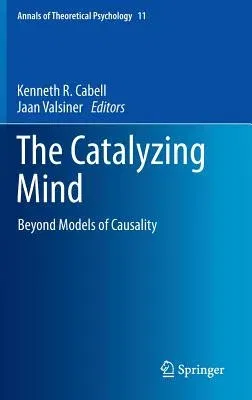The Catalyzing Mind: Beyond Models of Causality (2014)Hardcover - 2014, 12 November 2013

Qty
1
Turbo
Ships in 2 - 3 days
In Stock
Free Delivery
Cash on Delivery
15 Days
Free Returns
Secure Checkout

Part of Series
Annals of Theoretical Psychology
Print Length
303 pages
Language
English
Publisher
Springer
Date Published
12 Nov 2013
ISBN-10
1461488206
ISBN-13
9781461488200
Description
Product Details
Book Edition:
2014
Book Format:
Hardcover
Country of Origin:
NL
Date Published:
12 November 2013
Dimensions:
23.39 x
15.6 x
1.91 cm
ISBN-10:
1461488206
ISBN-13:
9781461488200
Language:
English
Location:
New York, NY
Pages:
303
Publisher:
Weight:
630.49 gm